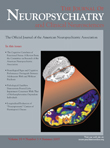A Novel View on the Pharmacodynamics of Rosiglitazone and Introducing Some Potential Drugs in Ameliorating Alzheimer’s Disease
SIR: Alzheimer’s disease is a progressive and fatal neurodegenerative disorder manifested by cognitive and memory deterioration, progressive impairment of daily living activities, and a variety of neuropsychiatric symptoms and behavioral disturbances.
Increasing evidence shows that neurotoxicity is mediated by CNS inflammatory processes, which involve activation of the microglia by the amyloid-beta, leading to the release of proinflammatory cytokines, including interleukin-6 (IL-6) and tumor necrosis factor-alpha (TNF-alpha). Neurotoxic processes mediated by these cytokines may include direct neuronal death by enhancement of apoptosis, decreased synaptic function, and inhibition of hippocampal neurogenesis. 1
Rosiglitazone is used in some studies for improving the symptoms of Alzheimer’s disease but there is controversy about its mechanism of action. 2
There is evidence that shows the effect of rosiglitazone in reducing IL-6. 3 Although a study has shown that rosiglitazone cannot reduce IL-6, 4 it seems that this study was not maintained long enough to determine this effect.
In addition, a study showed that poor sleep is associated with higher interleukin-6 in older caregivers of people with Alzheimer’s disease. 5
According to aforementioned studies, we hypothesize that one of the mechanisms of action of rosiglitazone in ameliorating Alzheimer’s disease is reducing IL-6. Moreover, it seems that this drug can improve the sleep of people with Alzheimer’s disease.
Prescribing other IL-6 reducers as clenbuterol may be a good treatment for Alzheimer’s disease. On the other hand, TNF-alpha antagonists, like thalidomide, infliximab, etanercept, and adalimumab, may be effective in Alzheimer’s disease.
Surely, clinical trials are needed to validate our hypothesis.
1 . Rosenberg PB: Clinical aspects of inflammation in Alzheimer’s disease. Int Rev Psychiatry 2005; 17:503–514Google Scholar
2 . Watson GS, Cholerton BA, Reger MA, et al: Preserved cognition in patients with early Alzheimer disease and amnestic mild cognitive impairment during treatment with rosiglitazone: a preliminary study. Am J Geriatr Psychiatry 2005; 13:950–958Google Scholar
3 . Esposito K, Ciotola M, Carleo D, et al: Effect of rosiglitazone on endothelial function and inflammatory markers in patients with the metabolic syndrome. Diabetes Care 2006; 29:1071–106Google Scholar
4 . Hetzel J, Balletshofer B, Rittig K, et al: Rapid effects of rosiglitazone treatment on endothelial function and inflammatory biomarkers. Arterioscler Thromb Vasc Biol 2005; 25:1804–1809Google Scholar
5 . von Kanel R, Dimsdale JE, Ancoli-Israel S, et al: Poor sleep is associated with higher plasma proinflammatory cytokine interleukin-6 and procoagulant marker fibrin D-dimer in older caregivers of people with Alzheimer’s disease. J Am Geriatr Soc 2006; 54:431–437Google Scholar



